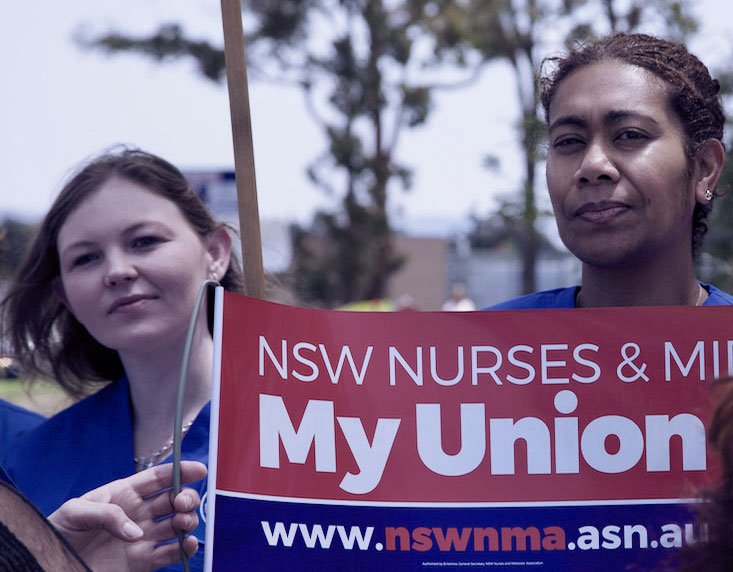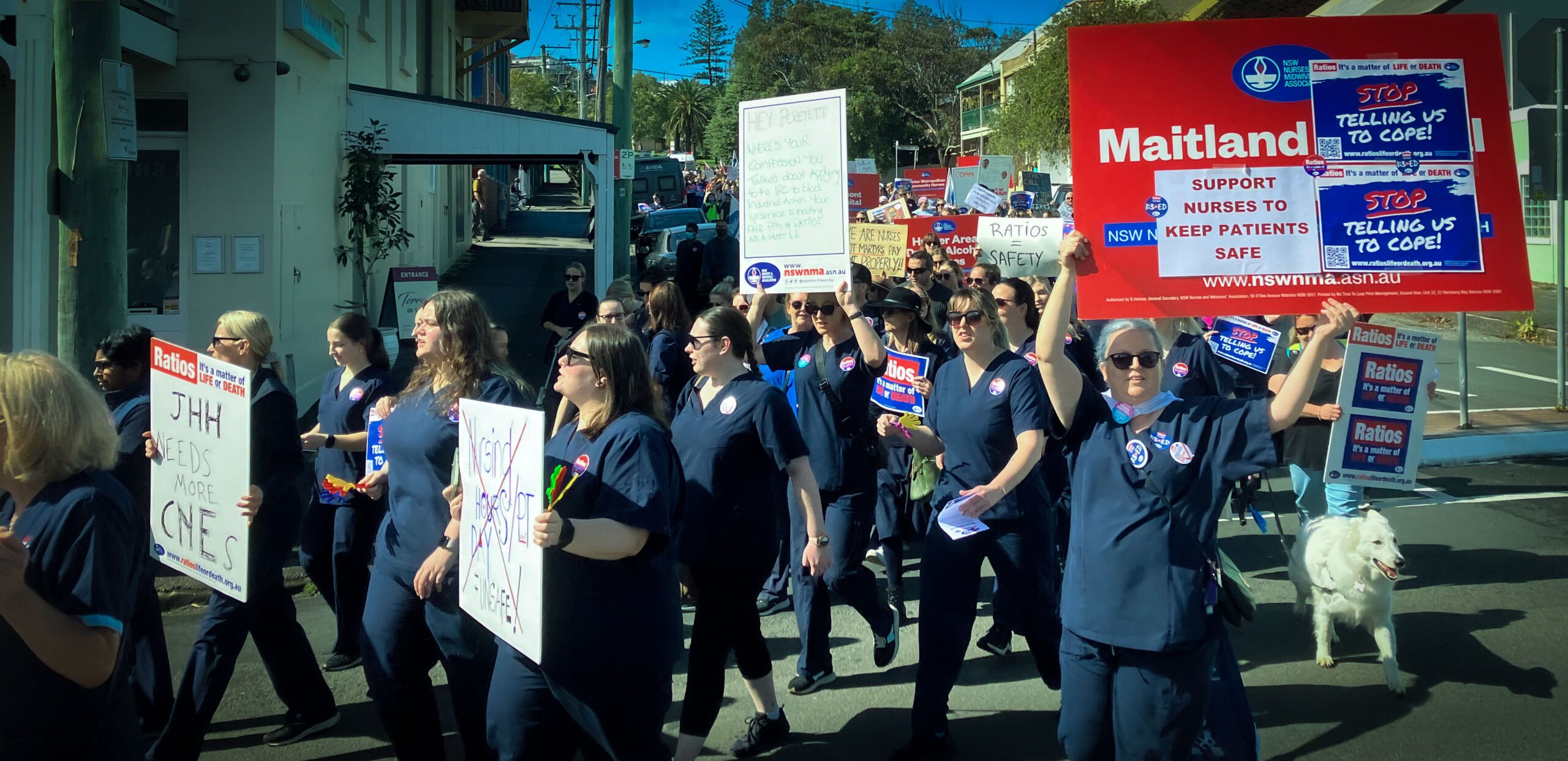The NSW State Government’s unseemly rush to pass legislation that allows it to start privatising its disability services could actually put at risk real choice and the quality of services offered by the National Disability Insurance Scheme (NDIS), as well as good secure jobs in the sector, the NSW Nurses and Midwives Association (NSWNMA) said today.
The NSWNMA was commenting on last night’s approval by the NSW Legislative Council of the State Government’s National Disability Insurance Scheme NSW Enabling Bill 2013, which, in the words of the director-general of the NSW Department of Family and Community Services:
“…makes possible a wide range of options for how our services and staff could transfer to the non-government sector over the next five years.”
NSWNMA officials and representatives of other unions with members at Family and Community Services were scheduled to meet with the director-general, Mr Coutts-Trotter, on Monday to start discussing the bill. However, the bill has now been rushed through the NSW Parliament without that vital consultation, using the general support for the “idea” of the NDIS as cover for introducing these controversial changes to state-owned disability services.
NSWNMA members at the NSW Department of Family and Community Services (FACS) will now meet next Thursday, 7 November, to discuss this privatisation policy, its impact on staff, residents and their families and the commencement of a campaign against the wholesale privatisation of disability services currently owned and operated by the NSW Government. The NSWNMA currently has about 1200 members providing disability nursing services at FACS facilities.
NSWNMA general secretary, Brett Holmes, said that, like most of these privatisation and service devolution policies in the past, this one is also being dressed up in positive language about things like choice, more community engagement and flexibility.
“The problem is we have heard it all before in sectors such as mental health and aged care and, all too often, the practice doesn’t match the rhetoric when governments totally vacate the field or devolved services, especially for people with complex conditions or disabilities, are not properly staffed and funded.
“In fact, by completely getting out of disability service provision, the NSW Government could actually be reducing real choice and service quality over time.
“There is a big question mark over whether the non-government sector can run the full suite of services required for an effective, quality NDIS, as suggested by government speeches in support of the bill. This is especially true for people with a serious disability and their associated health conditions.
“As for the so-called protection and transfer of current public sector employees and their terms and conditions of employment, the devil is again in the detail of this new Act. The NSWNMA is still studying that detail, but there are already a number of problems evident with the provisions enacted and doubts about some of the assurances being given by thesState Government to its 14,000 disability services employees.
“For a start it appears people can be transferred without their consent. There is also uncertainty about how long any transferred employment conditions will last in the non-government sector. It is also unclear just how effective any future wages and conditions bargaining will be in the non-government sector.
“A full report on these issues will be provided to next Thursday’s meeting of disability nurses.
“But, all in all, despite the effusive rhetoric about the NDIS, choice and flexibility, this latest privatisation just looks like any other – an attempt to get vital services on the cheap, with no long-term guarantees really able to be made about choice, quality and access.
“There is no reason the NDIS requires the privatisation of state Government services, other than the fact the O’Farrell Government seems to have made it a condition of signing up to it. A lot of people have been taken by surprise by this development in NSW and the NSWNMA hopes it does not damage the reputation and true goals of the NDIS, which we all support,” Mr Holmes said.








